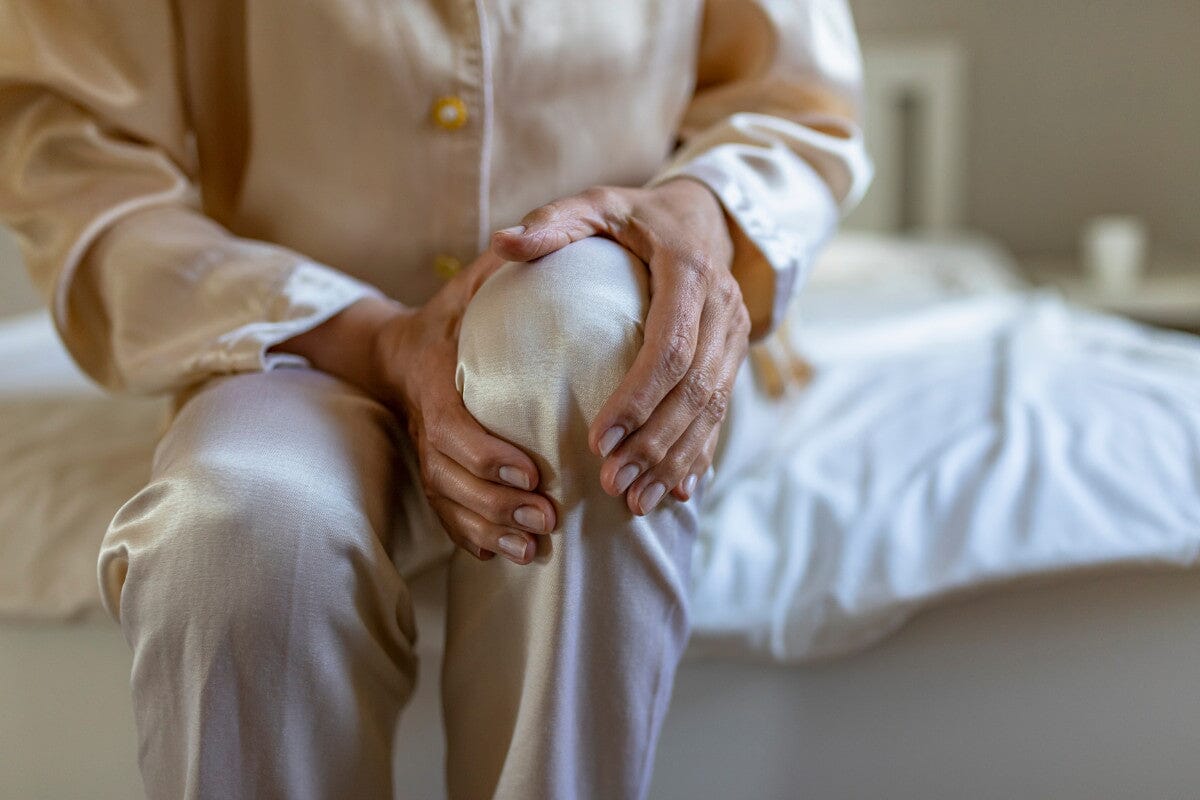Your Cart is Empty
FREE SHIPPING OVER $45 & RETURNLESS REFUNDS

If you are a sufferer of gout then there's a good chance that you've been woken up in the middle of the night due to an intense pain shooting through your body. You also probably know that that intense pain can make it almost impossible to get back to sleep, disrupting your quality of sleep and making the day ahead a long one.
Gout pain and gout attacks do actually tend to occur more often at night. But why? There are a few different reasons as to why this might happen:
When we sleep, our body temperature typically drops about 1 or 2 degrees. Though this may not seem like a lot, it's just enough for uric acid to crystalize in your joints and cause a gout attack. This is because uric acid is more likely to crystalize in lower temperatures.
Cortisol is a hormone found naturally in your adrenal glands that manages your metabolism, immune response, and inflammation.
The cortisol levels in our body are at their lowest around midnight, typically when we're sleeping. This change in cortisol levels may be a reason why gout attacks are more common at night as cortisol plays a critical role in reducing inflammation.
It's normal to lose a lot of water while you're sleeping due to breathing or sweating. But water loss can contribute to an increase in uric acid levels in your body, thus increasing the risk for a gout attack at night.
As you sleep, your breathing slows down and your lungs expel less carbon dioxide. Due to the excess amounts of carbon dioxide in your lungs, your blood may become slightly more acidic and encourage the formation of uric acid crystals.
Sleep apnea causes the body to take in less oxygen which may also result in an increase in uric acid crystallization.
Making healthy lifestyle choices plays a huge role in helping manage gout symptoms.
You may also be able to help reduce your risk for gout attacks at night by ensuring you stay hydrated throughout the day, getting tested and treated for sleep apnea, and taking supplements.
Let us know what topics you're interested in, and we'll do our best to include them in future blogs! Email us at info@toneshealth.com